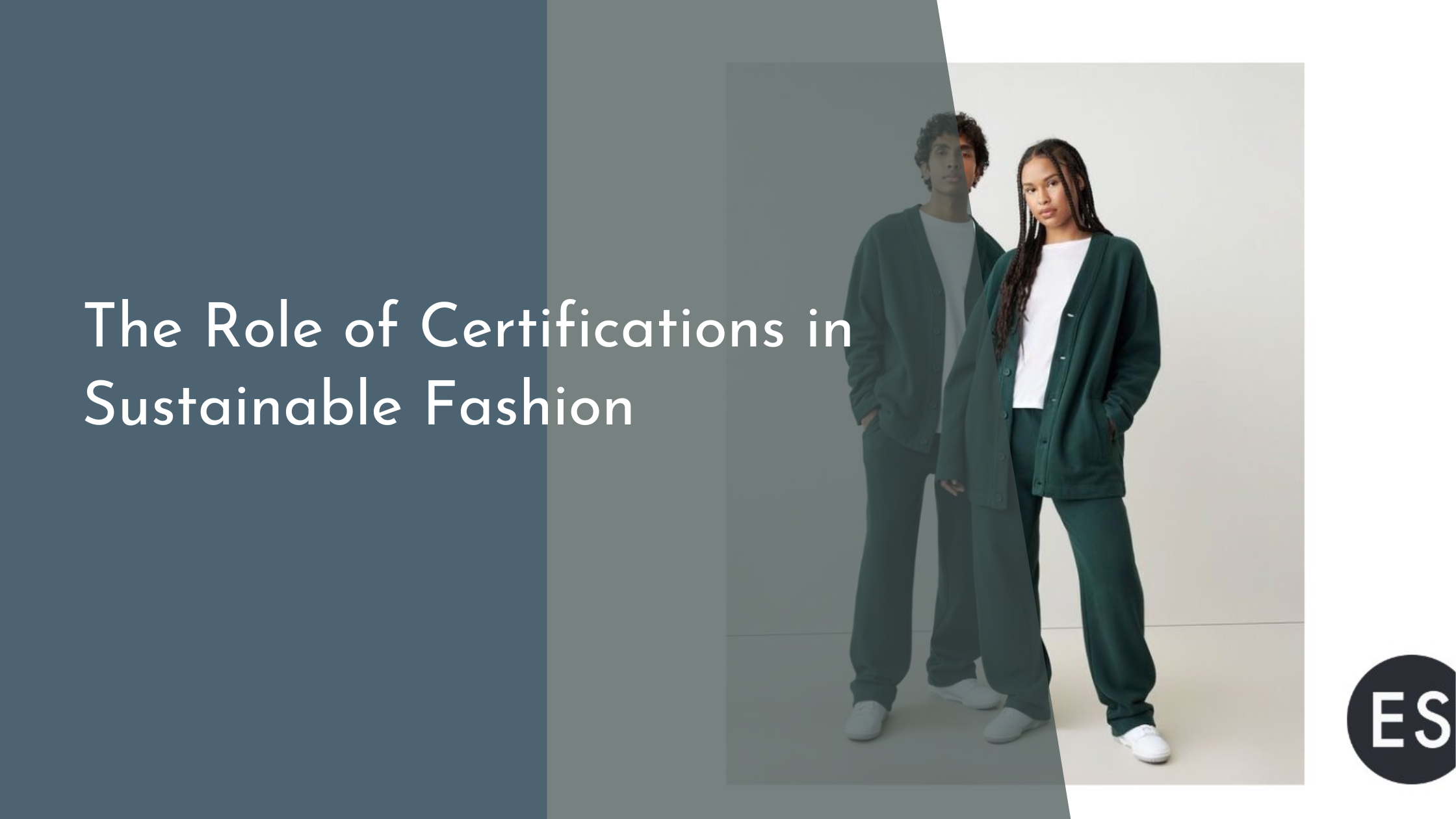The Role of Certifications in Sustainable Fashion
Sustainable fashion has gained significant momentum in recent years, driven by growing awareness of environmental and social issues linked to the fashion industry. As consumers become more eco-conscious, the demand for transparency and accountability from brands is on the rise. This is where sustainable fashion certifications come into play. They serve as a guideline for brands to adhere to and a badge of trust for consumers looking to make environmentally and ethically sound choices. In this article, we will delve into the role of certifications in sustainable fashion, exploring their importance, the key certifications making waves in the industry, and how they benefit both brands and consumers. Additionally, we’ll guide you on how to choose the right certification for your needs.
Understanding Sustainable Fashion Certifications
Sustainable fashion certifications are benchmarks that assess and verify the environmental and social practices of fashion brands. These certifications evaluate various aspects, such as the sourcing of materials, production processes, labor conditions, and overall carbon footprint. By adhering to these standards, brands can showcase their commitment to sustainable practices, while consumers can trust that their purchases are not contributing to harmful practices. Certifications act as a bridge between industry stakeholders and consumers, ensuring that claims of sustainability are backed by credible, third-party verification.
The rise of certifications in fashion is a response to the industry’s need for a more structured and standardized approach to sustainability. With the plethora of labels and claims in the market, certifications help cut through the noise, offering a clear and reliable way to measure a brand’s sustainability. However, not all certifications are created equal. Some focus on specific parts of the supply chain, such as materials or labor, while others offer a more holistic view. Understanding these distinctions is crucial for both brands and consumers seeking to engage in truly sustainable practices.
Key Certifications Transforming the Industry
One of the most transformative certifications in the sustainable fashion industry is the Global Organic Textile Standard (GOTS). GOTS ensures that textiles are made from organic fibers and meet rigorous environmental and social criteria throughout the entire supply chain. It is highly respected for its comprehensive approach, encompassing everything from the harvesting of raw materials to environmentally and socially responsible manufacturing. With GOTS certification, brands signal their commitment to high standards in organic production, which in turn reassures consumers.
Another pivotal certification is the Fair Trade Certified label, which focuses on creating equitable trading partnerships and improving the livelihoods of workers in developing countries. This certification emphasizes fair wages, safe working conditions, and environmentally sustainable practices. By choosing Fair Trade Certified products, consumers can help support more equitable and sustainable production systems. These certifications, among others, play a significant role in encouraging brands to adopt more responsible practices while educating consumers about the impact of their purchasing choices.
Benefits of Certification for Brands and Consumers
For brands, obtaining a sustainable fashion certification can enhance their reputation and market positioning. In a competitive market, certifications serve as a unique selling proposition, setting certified brands apart from those that do not meet recognized sustainability standards. Certifications can also open up new market opportunities, as more retailers and consumers prioritize sustainable products. Additionally, they provide a framework for continuous improvement, encouraging brands to refine their processes and reduce their environmental impact over time.
For consumers, certifications offer peace of mind and assurance that their purchases align with their values. They enable consumers to make informed decisions, knowing that certified products adhere to rigorous standards. Certifications also educate consumers about the complexities of sustainability in fashion, fostering a more informed public that can drive change through their purchasing power. Ultimately, certifications empower consumers to support brands that are genuinely committed to making a positive impact on the planet and society.
How to Choose the Right Certification for You
When choosing a sustainable fashion certification, it’s essential to consider what aspects of sustainability are most important to you. If you prioritize organic materials, certifications like GOTS might be ideal. For those focused on ethical labor practices, the Fair Trade Certified label is an excellent choice. It’s crucial to research the different certifications available and understand what they specifically verify. Consider your values and the areas you wish to support through your purchasing decisions.
Additionally, it’s beneficial to look for certifications that are widely recognized and respected within the industry. These certifications often have more stringent standards and offer greater transparency. It’s also helpful to check if the certification is independently verified by third parties, ensuring objectivity and credibility. By taking these steps, you can confidently choose certifications that align with your personal values and support a more sustainable and ethical fashion industry.
In conclusion, certifications play a pivotal role in driving the sustainable fashion movement forward. They provide a structured framework for brands to follow and offer consumers assurance that their purchasing decisions are making a positive impact. By understanding the different types of certifications and their significance, both brands and consumers can contribute to a more sustainable and ethical fashion industry. As the demand for transparency and accountability continues to grow, certifications will remain a vital tool in fostering meaningful change and promoting a greener future for fashion. Whether you are a brand aiming to improve your sustainability credentials or a consumer seeking to make more conscious choices, understanding and utilizing fashion certifications can make a significant difference.


